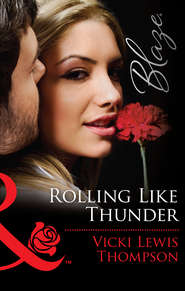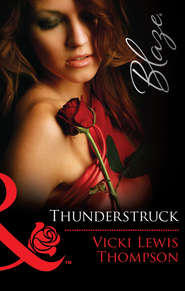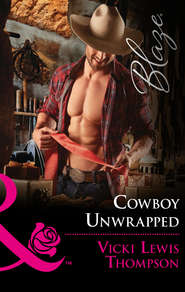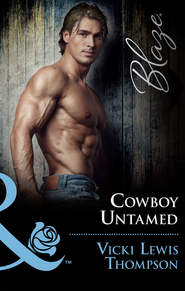По всем вопросам обращайтесь на: info@litportal.ru
(©) 2003-2025.
✖
That's My Baby!
Автор
Год написания книги
2018
Настройки чтения
Размер шрифта
Высота строк
Поля
“What are you gonna do?” He pulled off the road as she’d asked, but gone was the camaraderie they’d established. He sounded nervous and suspicious again. “I can’t let you get out here, in the dark. And you sure as hell can’t follow him into that place. They got one of those automatic gates, and there are probably Dobermans running around or something. I should never have agreed to this. You’re some psycho or something, aren’t you?”
Jessica’s teeth chattered from the adrenaline rush of being so close to Franklin Hall again, but she tried to stay calm. “I can follow him into that place,” she said. “I used to live there. I know the gate code.”
“No way!”
“Look, I’ll prove it to you. First let me pay you what I owe.” She glanced at the meter and handed him some bills, along with a generous tip.
He looked a little happier upon seeing the money. “Just let me take you back to Manhattan, okay? I won’t even charge you. But I can’t leave a woman on a lonely country road like this. If I was to read about you in the papers, I’d never forgive myself.”
Jessica watched the taillights of the other cab disappear down the winding lane leading to the main house, which was obscured by trees. “Okay, you can pull over to the gate now. I’ll show you I can open it.”
“I’ll pull over there.” He guided the car across the road and stopped, his headlights shining on the ten-foot-tall gates with the scrolled letters FH worked into the intricate design. “But you’re not opening that gate. I know the kind of people who would live here, and you’re not that kind.”
“Appearances can be deceiving.” She opened the car door. “You can stay here until I open the gate, and then go on back. That way you’ll know I’m inside the protection of the fence.”
“What if you’re attacked by dogs?”
“There aren’t any dogs. At least not the last I heard.” She opened the door and got out, hefting her backpack onto her shoulder. “Thanks for bringing me out here,” she said. “And do ask your wife about taking that weekend trip to a bed-and-breakfast.” She closed the door.
He rolled down the window and stuck his head out. “You just show me you can open that gate. When you can’t, I’ll take you back to town, no questions asked. You can stay at the Y.”
She turned to smile at him. “Thanks. You’re a nice man. But I won’t need to do that.” She still wasn’t sure what she would do once she was inside the gate, but that was her first step. The code came back to her the minute she stepped up to the keypad, and she punched it in without hesitation. The gates swung slowly open.
“I’ll be damned,” the cabbie said. “Who are you, anyway?”
“Doesn’t matter.” She gave him another smile. “Goodbye.”
“This’ll be one to tell the guys.”
A chill passed over her. “Please don’t. Don’t tell anybody about this.” She had no idea how close her stalker might be.
“Look, if the police question me, because somethin’ bad happens, then—”
“They won’t. I’m just asking you not to gossip to the other cabdrivers. Can you promise that?”
“Yeah, I can promise that. Better get in there. The gates are closing again.”
“Right. Bye.”
“Take care of yourself.”
She turned and ran through the gates before they clanked together with a sound that brought back that familiar feeling of claustrophobia. Once again she was a prisoner of Franklin Hall.
CHAPTER TWO
NAT HAD PREPARED himself for wealth, yet he was still blown away as the cab pulled up in front of the floodlit colonial mansion. In bandbox condition, the exterior was the color of ripe wheat, and the ivory trim looked as if it had been freshly painted that morning.
Jess had once lived here. The knowledge sent adrenaline rushing through his system, sweeping aside the fatigue of a transatlantic flight. Surely her parents would be able to tell him where he could find her.
The circular driveway had taken them up to an elegant entry, but the big draw of the house was obviously the view from the back, which sloped steeply down to the Hudson. On the way in, he’d caught glimpses of the majestic river through the trees, and the driver pointed with excitement when a barge, lit up like a Christmas tree, glided past, its engines thrumming in the night air.
Nat’s real estate training kicked in. He quickly calculated what the house alone must be worth, not even considering the grounds. Even in the dark they appeared extensive and manicured. The newspaper business had been good to Russell P. Franklin.
“Nice place.” The cabdriver switched off the engine.
“Not bad,” Nat agreed. But impressive as the house was, he wouldn’t want to live in it, and he couldn’t picture free-spirited Jess here, forced to spend her childhood behind locked gates. He was beginning to understand how lonely she’d been as the only child at Franklin Hall.
Opening the car door, he was greeted by the friendly scent of a fireplace in use. That heartened him, although he doubted the setting was as cozy as the living room at the Rocking D in Colorado. But he didn’t need cozy right now. He needed information. He hoped to God her parents had some.
He turned toward the driver. “Listen, I don’t know how long I’ll be, so I’m sure you could wait in the house, where it’s warmer.”
“Nah. Thanks, anyway, but I’d rather stretch my legs and have a smoke, if it’s all the same to you. I’ll be here whenever you’re ready to go.”
“Okay.” Nat was too impatient to argue the point. “Knock on the door if you change your mind.” Leaving his backpack in the cab, he exited the car and mounted the steps to the front door, which looked as proper as a starched shirtfront. He lifted the brass knocker and rapped twice.
Almost immediately a uniformed butler opened the door.
Nat introduced himself. He was ushered quietly inside and relieved of his leather jacket. The butler had a strong British accent, and Nat remembered Jessica mentioning him. Barclay. Her father had hired him away from the Savoy.
The foyer lived up to the promise of the outside. A crystal chandelier sprinkled light over antiques that had been waxed and buffed until they shone. A table against one wall held a small bronze that Nat thought might be famous. He wasn’t up on art, but it looked familiar.
On a larger table in the center of the large entry, a bouquet of fall flowers filled a blue-and-white urn taller than a two-year-old child. Nat would bet the flowers were replaced every day. Their scent mingled with the tang of paste wax, and something else—maybe the smell of money, Nat thought. The contrast with the poverty he’d recently left made the elegant setting seem almost obscene.
“Mr. and Mrs. Franklin are in the library,” the butler said. “If you’ll follow me.”
As Nat walked down the hallway, an Oriental carpet that looked old and priceless cushioned his steps. He glanced at the gleaming railing on the stairway spiraling up to the second floor, and a vivid image of Jess sailing down the banister tugged at his heart. She’d only gotten away with it once, she’d said, but she’d never forgotten the joy of risking the forbidden.
He’d been having trouble finding evidence of her in this formal setting, but the banister looked as if it had been made for sliding down. Still, she’d probably never swung on a tire in the backyard or played hopscotch on the front walk. He was glad he’d seen this place, if only to understand Jess better.
His last picture of her tortured him—her long red curls tousled from lovemaking, her brown eyes filled with angry tears. Don’t you love me enough? she’d cried.
He’d left without answering the question, which effectively gave her an answer. He’d heard some object hit the door and shatter after he’d closed it behind him.
For Jess, love meant marriage and children. He hadn’t been willing to give her either one, because he’d thought he’d be lousy at it. He still thought so, but she’d haunted him the entire time he’d been gone. Another worker in the refugee camps, a sweet and willing woman, had offered herself. He’d gladly accepted, but to his chagrin he discovered that he couldn’t make love to anyone but Jess.
Finally he’d faced the truth. Sometime during the year he’d been seeing Jess, while he’d thought he was guarding his heart, she’d crept past the gates and set herself up as a permanent resident. He could either live the rest of his life alone, or he could try to overcome his fears and give Jess what she wanted.
Bad risk though he was, she’d been eager to take a chance on him once. He wondered if she still would. In the refugee camps he’d dealt with people who’d been ripped away from loved ones by force and had to scratch for every bit of human connection. After witnessing that, tearing himself from Jess seemed like ego run amok. He’d been offered so much, and he’d foolishly rejected it.
The thought of having kids still scared him to death, but maybe, in time, he could get used to that, too. If he expected to create an adoption program for war orphans, he’d be a real hypocrite if he didn’t at least consider that option for himself.
But first he had to find Jess. And he had no clue where she was. For seventeen months he’d pictured her in her little Aspen apartment. When he hadn’t been able to locate her there, he’d gone slightly crazy.
The butler paused in the doorway of the library to announce him, and Nat was so lost in thought, he nearly ran into the guy.
“Mr. Nat Grady to see you, sir,” the butler said.
“Show him in, Barclay,” boomed a voice from the interior of the room.











